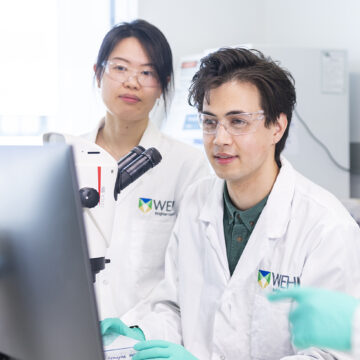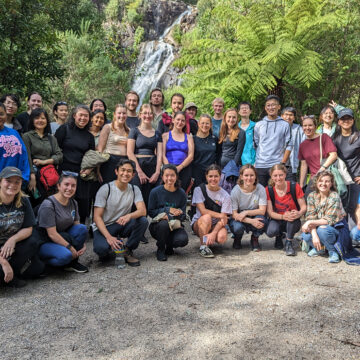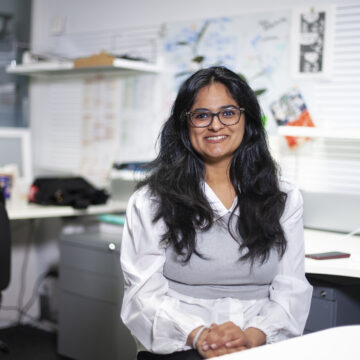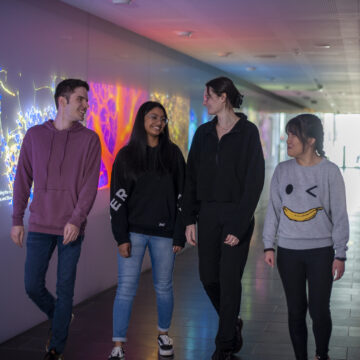As a PhD student Emma, working with her supervisors Professor Jane Visvader and Professor Geoff Lindeman, pinpointed the cells that give rise to breast cancer in samples of breast tissue donated by women with BRCA1 mutations.
In 2016 the research team then showed that a class of existing medications called RANK inhibitors could switch off cell growth in breast tissue from women with a faulty BRCA1 gene, and curtail breast cancer development in laboratory models. Their research was published in the journal Nature Medicine.






